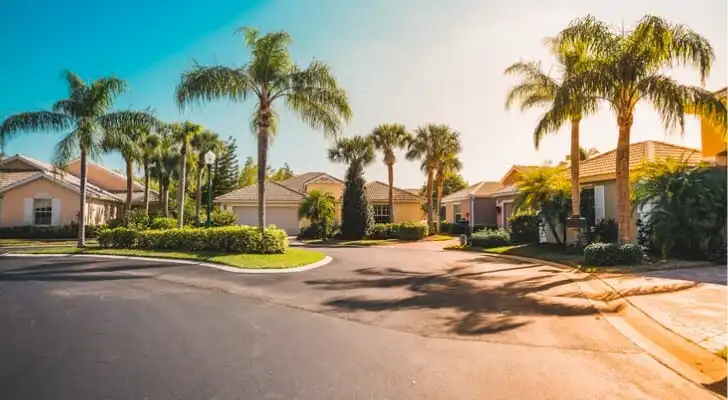There are multiple ways to retire. You may choose to pay off your home and live in it as long as possible. Or, if you own your home, you can cash in on its equity and use it to fund your lifestyle. But maybe you don’t currently own a home, and buying one isn’t the right financial choice for you. Regardless of which scenario applies to you, renting in retirement is often the right solution for many people. A financial advisor can help you make critical decisions in retirement, like where to live and how much to spend on housing.
Renting vs. Homeownership
Over 79% of Americans ages 65 or older own their home, according to Statista, meaning approximately 21% are renters. Ownership can helps you build equity and wealth. And if it’s paid off, you’ll only have to pay taxes and insurance. However, home ownership comes with other costs. You’ll need to fund maintenance and repairs and stay up to date on upkeep. But you also won’t have the flexibility that renting in retirement offers.
SmartAsset’s calculator can shed some light on financial questions on a case-by-case basis.
Reasons to Choose to Rent

The main reasons why people rent instead of owning a home can be boiled down to three factors: flexibility, liability and accessibility.
Flexibility
If you own a home, you’re tied to that property. If you rent and want to move, you’ll just need to wait until your lease is up or negotiate your way out of it. With renting, you don’t have to go through the whole process of selling your home. You can just move.
For example, let’s say you live in Minneapolis and your son and his family decide to move to Phoenix. You could decide you want to follow them to Arizona. If you’re renting, you only need your lease to end before getting another one. However, if you’re selling your home, there is a lot more work you need to do. Plus, when you get to Arizona, you’ll need to decide whether you’ll rent or buy there.
Liability
Owning a home comes with a lot of responsibility. As a homeowner, you’ll either need to pay for maintenance or do it yourself. Here’s just a short list of regular maintenance and responsibilities:
- Lawn care
- Gutters cleaning
- Snow removal
- Appliance repairs
- Major home systems repairs and maintenance
- Pest control
If you’re renting in retirement, you won’t have to worry about any of that – your landlord will. You also don’t have to worry about a large part of your finances being tied up in one asset, which can be risky. For example, if something catastrophic happens to the home and you’re underinsured, you could be facing a major financial loss.
Accessibility
People buy homes in their younger years without planning for issues they may have when they’re older. Seniors can have difficulty going up and down staircases, getting into and out of bathtubs and navigating other parts of their homes. According to the CDC, falls are the leading cause of injury and death for seniors, so accessibility shouldn’t be taken lightly.
While you could modify your current home to make it more accessible, it may be easier to rent a place that was built with accessibility in mind. For example, many rentals geared toward retirees are ranch-style homes that don’t have stairs to the front door. These homes may have open floor plans, offering more space for someone with a walker or wheelchair.
Cons of Renting in Retirement
There are many upsides to renting, but there are reasons the vast majority of retirees their own homes. Perhaps the biggest drawback of renting is the cost. If you own your home outright, you don’t have to worry about paying rent monthly. You also don’t have to worry about rent increases.
If you’re renting, there are other downsides, too. For example, if you’re into decorating and modifying your living space, you may have restrictions on what you can do. Renting may prohibit you from hobbies like gardening or woodworking. Additionally, homeownership often comes with emotional ties to your home. Places contain memories and you may have a hard time parting with them or establishing new memories in a rental.
What to Do with Your Home if You Choose to Rent

If you own a home and want to rent, you have a couple options. You could sell your home or you could turn it into a rental property.
Cash in on the Equity
For homeowners who are retiring, a large lump sum could be a boon to their retirement savings. Selling a large asset like your house can help pay for your living expenses. You can use the funds to make investments that will provide a regular source of income, such as buying an annuity or investing in dividend-paying stocks.
Turn It Into an Investment Property
If you aren’t in immediate need of the cash from a home sale, you could also rent out your home. This will provide a regular influx of cash and you’ll still keep your home as an asset. Retirees can choose to maintain the property themselves or hire a property manager. While property managers will cost you extra, they’ll do the work of finding renters, collecting rent payments and responding to maintenance calls.
Bottom Line
Depending on your situation, renting in retirement could be a viable option. Whether you own a home or are currently a renter, there are a lot of positives to renting. Renting can provide flexibility and free you from the responsibilities of owning a home. Consider what your goals are for retirement and if renting is a way to achieve them.
Retirement Planning Tips
- While planning for retirement, a financial advisor can help you create a long-term plan to get you there. Finding a qualified financial advisor doesn’t have to be hard. Finding a financial advisor doesn’t have to be hard. SmartAsset’s free tool matches you with up to three vetted financial advisors who serve your area, and you can interview your advisor matches at no cost to decide which one is right for you. If you’re ready to find an advisor who can help you achieve your financial goals, get started now.
- You’ll probably need to save a lot to afford the retirement of your dreams. Check out our retirement calculator to get an estimate of how much you’ll need based on your income, expenses and other factors unique to you.
Photo credit: ©iStock.com/RgStudio, ©iStock.com/marchello74, ©iStock.com/PeopleImages
